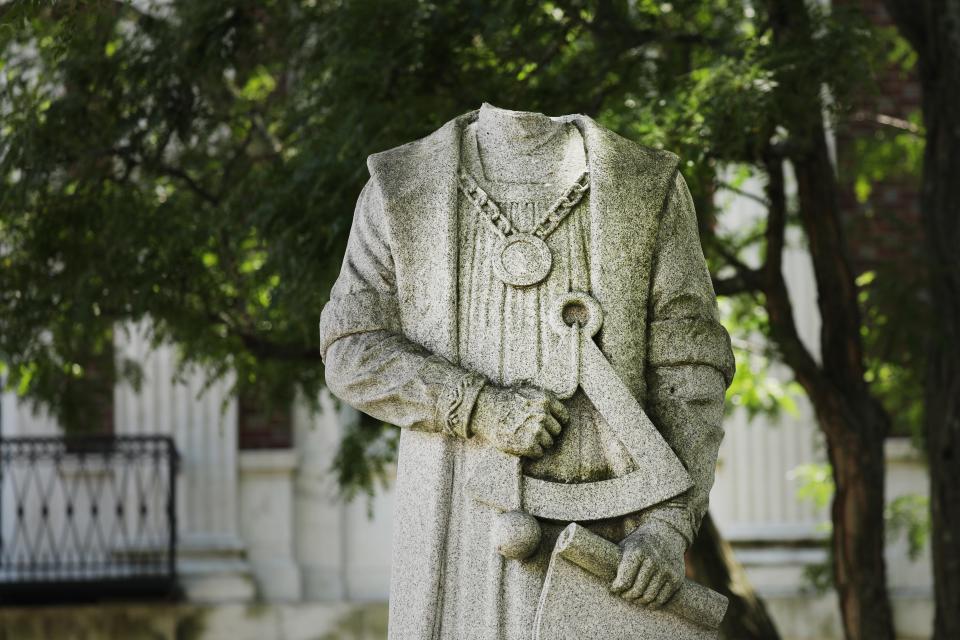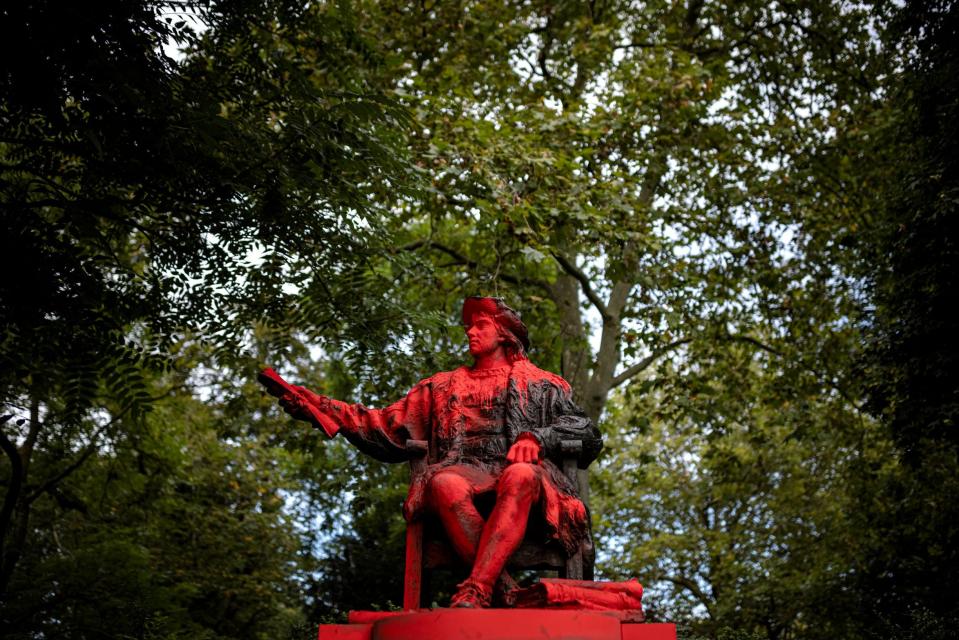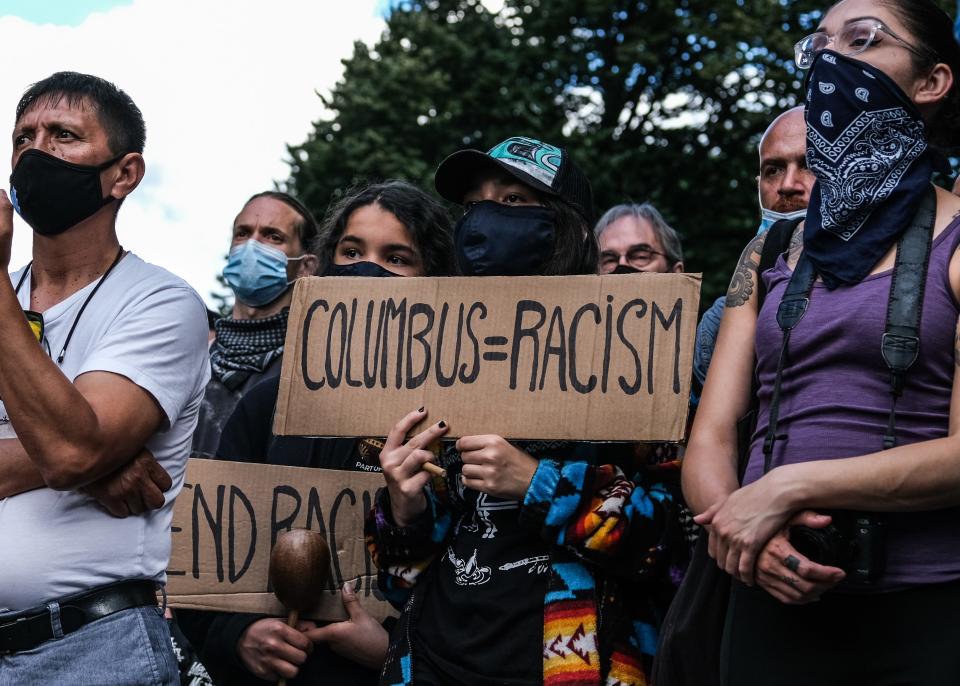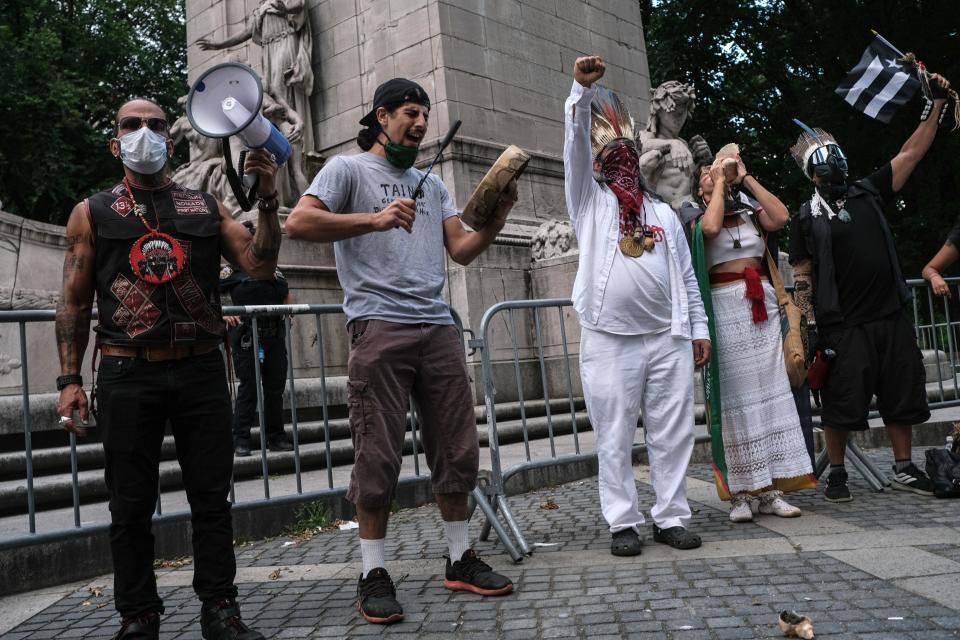Is commemorating Columbus Day offensive? Why the day's namesake is disrespectful to some
Correction: an earlier version of this story misstated the number of years that Native Americans have lived on the continent. The correct number is 16,000.
Monday marks a holiday in transition, as more states and cities embrace Indigenous Peoples' Day instead of Columbus Day.
"On Indigenous Peoples’ Day, we honor the sovereignty, resilience, and immense contributions that Native Americans have made to the world; and we recommit to upholding our solemn trust and treaty responsibilities to Tribal Nations, strengthening our Nation-to-Nation ties," President Joe Biden said in the 2022 Proclamation on Indigenous Peoples’ Day.
Despite the proclamation, Columbus Day is still a federal holiday. Pew Research shows the public, paid holiday is still exclusively celebrated as Columbus Day in 16 states.
Continuing to celebrate Christopher Columbus implies that we are ignoring the well-documented history of his atrocities, according to Reynaldo Morales, assistant professor at Northwestern University. He is a descendent of the Quechua peoples of Peru, and he teaches on American Indian, indigenous peoples' issues in the media, and covers environmental issues facing indigenous communities around the world.
"We know that in terms of Columbus' figure, Indigenous peoples have compared it to Hitler," Morales said. "Even though the story has some gory details, it's very important that we understand how celebrating Columbus Day is insensitive and what kinds of impacts it could have on Native Americans or indigenous communities today."
Christopher Columbus' violent history

In 1492, Columbus sailed the ocean blue. Many are taught that lesson early in American schools, but the rhyme leaves out the carnage that Columbus brought when he arrived.
Morales said that Columbus and his men brought a "scope of violence reaching the level of genocide that had no precedent in the large American continent before Europeans."
Here are some examples of the atrocities Columbus committed, as compiled by Philadelphia Magazine:
Columbus cut off the hands of approximately 10,000 natives in Haiti and the Dominican Republic because they failed to provide gold every three months.
He punished minor offenses by cutting off noses and ears.
Columbus and his crew hunted natives for sport and released them to hunting dogs to be ripped apart.
Columbus cut off the legs of native children who tried to run from them.
He aided in sex trafficking nine and ten-year-old girls.
"We have no reason whatsoever — only because we ignore these facts — to celebrate the legacy or the figure of such criminal," Morales said.

Why continuing to celebrate Columbus Day is hurtful
In light of the well-documented cruelty against Native Americans, Morales said that to celebrate Columbus Day is to say that the lives lost didn't matter. In fact, he also argued, the ripples of Columbus' actions are still present today.
Columbus used the Doctrine of Discovery to assert that the lands could be claimed because they were not already ruled by Christians. Morales said that this meant they began exploiting land and resources that had been managed sustainably by the people there for thousands of years.
"We can see these actions in the light of our contemporary laws and reflect on the understanding of the deep roots of inequality across the continent," Morales said. "We can see how they permeated into the notion of, for example, racial and economic privilege, that led to notions of white supremacy, the perpetration or racism now, and the different forms of ethnocentrism."
Part of the result is health, economic and disproportionate environmental impact for Native Americans, who have a lower life expectancy than members of other races.
Morales said that Native Americans had lived on the continent for 16,000 years, but their mainstream history has been characterized by the colonization that occurred in just the last 500 years. To him, this means there is a lot of hope for Native American communities' futures.

The movement to celebrate Indigenous Peoples' Day
Morales said that celebrating Indigenous Peoples' Day means that we take a stand against the violence brought by colonization.
"By celebrating Indigenous Peoples' Day, we collectively denounce Columbus's crimes as crimes against humanity," Morales said.
It is also a celebration of the contributions of Native American communities.
"By celebrating indigenous peoples, we highlight that the lives, cultures, languages, and knowledge of indigenous peoples in US and across a large continent that are at the core of our societies," he said. "Finally, we reflect on how indigenous peoples have emerged from the darkest chapters of US history, becoming becoming really one of the most important environmental stewards and leaders in biodiversity conservation."

Contributing: Nada Hassanein, Clare Mulroy
This article originally appeared on USA TODAY: Is Columbus Day offensive? Why change to Indigenous People's Day

